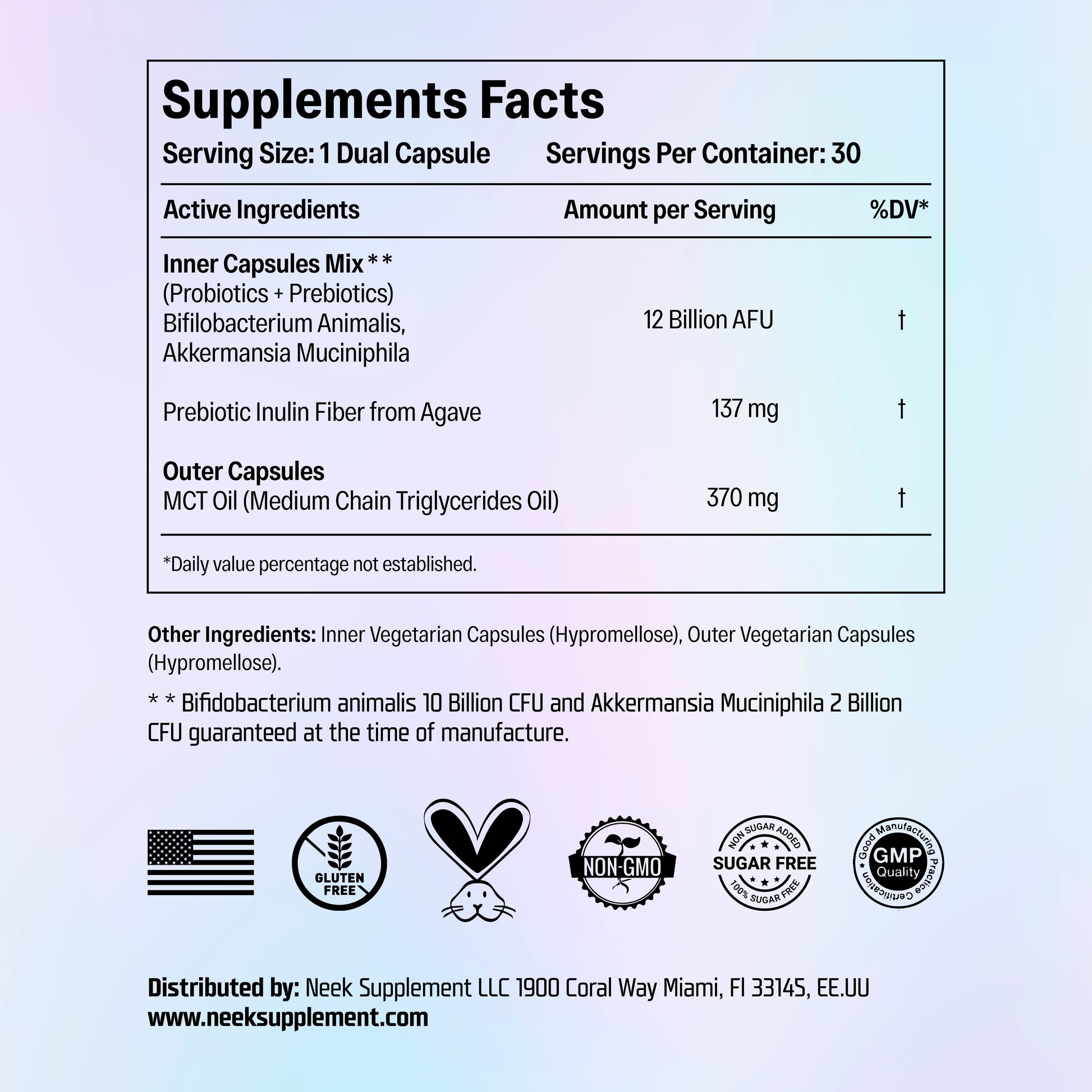Akkermansia muciniphila was discovered and named in honor of the Dutch microbiologist Antoon Akkermans, in recognition of his contribution to microbial ecology. The species "muciniphila" means "mucus lover," a reference to its unique ability to utilize mucin, the main component of intestinal mucus, as a source of nutrients. This name reflects both its discoverer and its functional role in the intestinal ecosystem.


Origin and Meaning of Akkermansia muciniphila
Function and Relevance in the Intestine
Akkermansia muciniphila constitutes approximately 3-5% of the intestinal microbiota in healthy individuals. Its main function is the degradation of mucin, which is essential for maintaining the integrity of the intestinal barrier. This barrier acts as a first line of defense against pathogens and toxins, preventing their passage into the bloodstream. Akkermansia breaks down mucin into byproducts that are used by other beneficial bacteria, contributing to the complex network of microbial interactions in the intestine.
In addition to maintaining the intestinal barrier, Akkermansia muciniphila plays a crucial role as a biological indicator of intestinal homeostasis. Its presence is associated with a healthy balance in the intestinal microbiome, which in turn is related to better metabolic health and a lower susceptibility to chronic diseases.


Relationship with Diseases and General Health
Decreased levels of Akkermansia muciniphila are linked to a number of adverse health conditions. Studies have shown that reduced levels of this bacteria are associated with obesity, insulin resistance, and type 2 diabetes. For example, in a study published in Nature Medicine, obese individuals were found to have significantly lower levels of Akkermansia muciniphila compared to lean individuals. This association suggests that Akkermansia may play a protective role against the development of metabolic disorders.
A decrease in Akkermansia has also been documented in inflammatory bowel diseases such as ulcerative colitis and Crohn's disease. Furthermore, patients with acute appendicitis have been found to have reduced levels of this bacteria, with the levels being lower the more severe the condition. A decrease in Akkermansia muciniphila has also been associated with other conditions such as hypertension, chronic inflammation, epilepsy, metabolic problems, autism, amyotrophic lateral sclerosis, cancer, psoriasis, allergic diseases and Parkinson's.
Scientifically Proven Benefits
Akkermansia muciniphila has been the subject of numerous scientific studies that have highlighted its benefits:
- Protection against Pathogens: Akkermansia helps maintain the integrity of the intestinal barrier, preventing the invasion of pathogens and toxins.
- Antitumor Properties: Studies have suggested that Akkermansia may have antitumor effects, helping in the prevention of certain types of cancer by improving the immune response and reducing inflammation.
- Reduction of Inflammation: This bacteria plays a key role in modulating the inflammatory response, both at the intestinal and systemic level.
- Improved Intestinal Permeability: Akkermansia contributes to maintaining the integrity of the intestinal barrier, preventing excessive permeability that can lead to inflammatory diseases.
- Boosting the Immune Response: Akkermansia improves the response of the immune system, strengthening the body's defenses against infections and chronic diseases.
How to Increase Akkermansia muciniphila in the Body
Diet is a determining factor in the composition of the intestinal microbiota. Although Akkermansia muciniphila feeds mainly on mucin in intestinal mucus, its presence can be influenced by diet. An unbalanced diet, high in fat and sugar, can decrease its abundance. Conversely, the intake of prebiotics, such as inulin, and foods rich in polyphenols, such as pomegranate and blueberry, stimulate its growth. Unsaturated fatty acids also play an important role in maintaining normal levels of Akkermansia.
A study published in The ISME Journal showed that supplementation with prebiotics such as inulin can significantly increase the abundance of Akkermansia muciniphila in the gut. Another study in *Gut Microbes* indicated that a diet rich in polyphenols, present in foods such as green tea and berries, can also promote the growth of Akkermansia.
The Science Behind Our Probiotics
In our quest to deliver the best in gut health, we have developed a probiotic formula that includes Akkermansia muciniphila and Bifidobacterium animalis (BPL01).
Akkermansia muciniphila: Our formula includes this revolutionary bacteria, known for its ability to maintain the intestinal barrier and its crucial role in metabolic and immune health. Akkermansia muciniphila is particularly effective at breaking down mucin, which contributes to the stability of the mucous layer and the protection of the intestinal epithelium.
Bifidobacterium animalis (BPL01): This probiotic strain is recognized for its ability to improve digestive health and strengthen the immune system. Studies have shown that BPL01 can increase microbial diversity and contribute to the balance of the intestinal microbiota. In addition, BPL01 has been associated with reducing inflammation and improving digestive function, promoting a healthy intestinal environment.
Conclusion
Akkermansia muciniphila represents a new generation of probiotics with proven benefits for gut and overall health. Incorporating these probiotics into your diet can be an effective strategy to improve digestive and metabolic health. Our innovative formula, combining Akkermansia muciniphila and Bifidobacterium animalis (BPL01), is designed to bring you the best of science and nature, backed by cutting-edge research.
Discover how our probiotics can transform your gut health and improve your overall well-being. Make the switch today!












